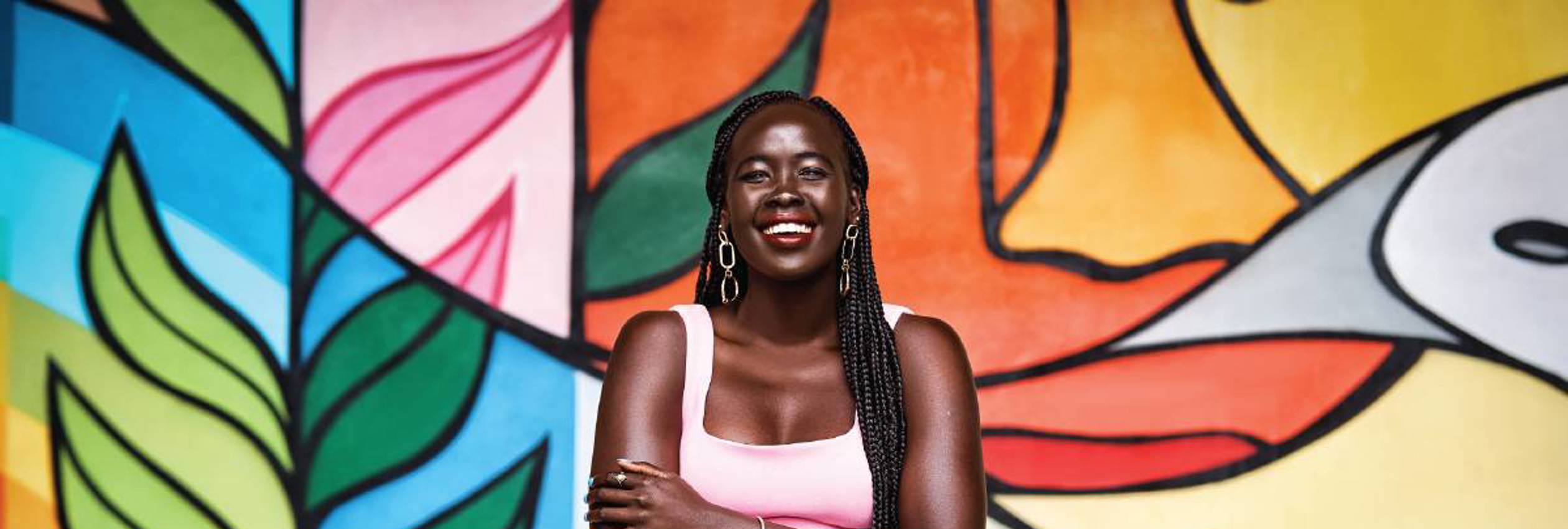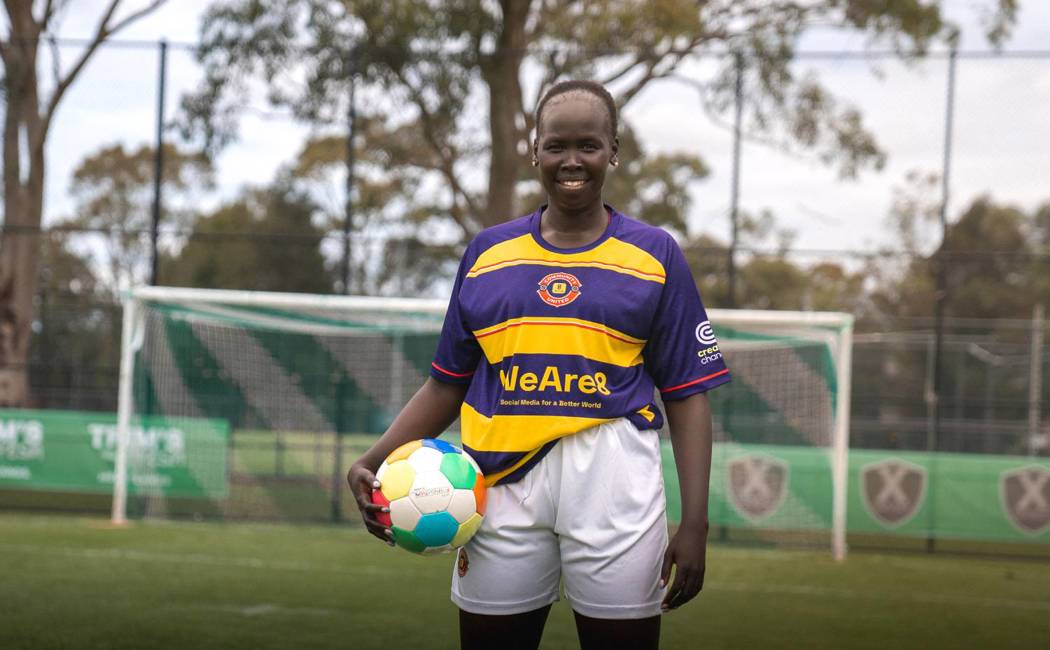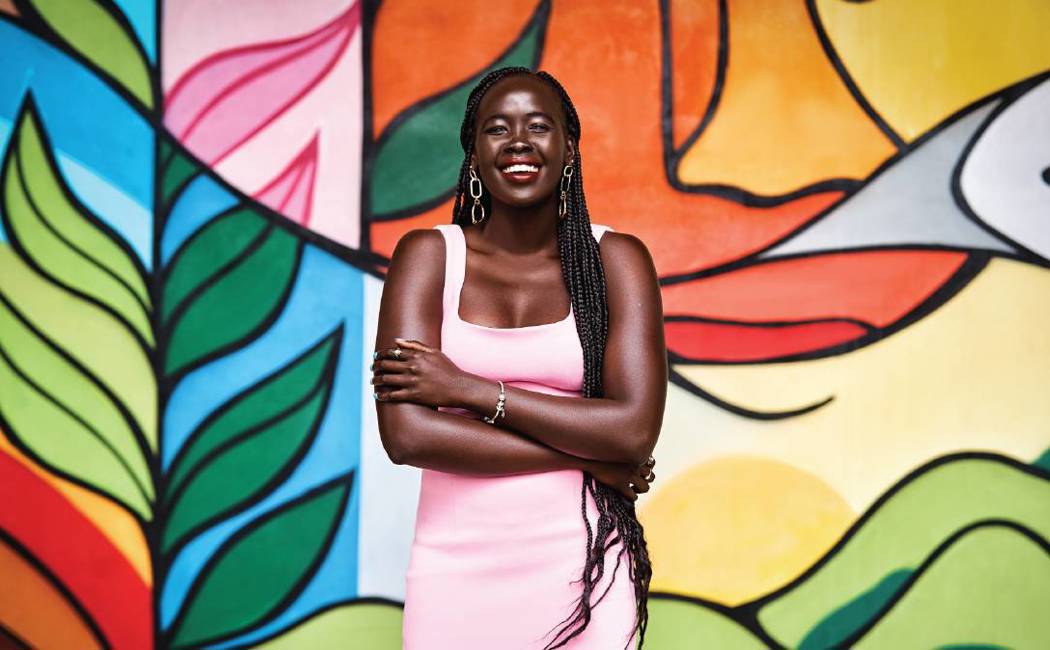Former South Sudanese refugee Anyier Yuol has won the 2023 Australia for UNHCR – SBS Les Murray Award for Refugee Recognition for her diverse achievements across sport, women’s empowerment and refugee advocacy.
“It was very surprising to win the award,” said Ms Yuol. “To be recognised by Australia for UNHCR and SBS shows that what I’m doing is significant and motivates me to do even more work, especially with women and girls.”
The former football player is a fitting recipient of the $10,000 prize, which is named after beloved SBS sports commentator and Hungarian refugee Les Murray AM.
“Les Murray is an icon. I used to wake up at 4am to watch his World Cup broadcasts on SBS. It’s such an honour to be able to receive this award because he was a refugee advocate and a passionate football fan who understood how sport plays an important part in refugee communities.”
The award was judged by Australia for UNHCR Deputy Chair Kate Dundas, UNHCR Regional Representative Adrian Edwards, SBS Director of Language and Audio Content David Hua, and former refugee Ann Odong.
“Many outstanding people were nominated for this year’s Les Murray Award,” said Ms Dundas. “But the judges were unanimous in their decision to give the award to Anyier Yuol. She’s made a name for herself from the football field to the catwalk to the halls of academia. The judges were impressed with her many accomplishments as well as her energy, her positivity and her determination to make a difference for displaced people.”
Ms Yuol was born in a UNHCR camp in Kakuma, Kenya. After her parents died, her aunt looked after her and her older sister. Ms Yuol says she has happy memories of childhood, surrounded by family and friends.
“For me, it was peaceful. I had the love and support from those who matter. It’s only now that I realise the barriers that existed in the camp. My aunt always made sure we had the basic things we needed to survive.”
Ms Yuol came to Australia on a humanitarian visa at the age of 10 with her sister and her father’s family, eventually settling in Blacktown in western Sydney. She felt out of place but was determined to forge her own identity from a young age.
“It was a challenge to understand the Australian culture while trying to maintain my South Sudanese culture, particularly the Dinka culture, but overall I wanted to become my own person.”

















 Australia
Australia

